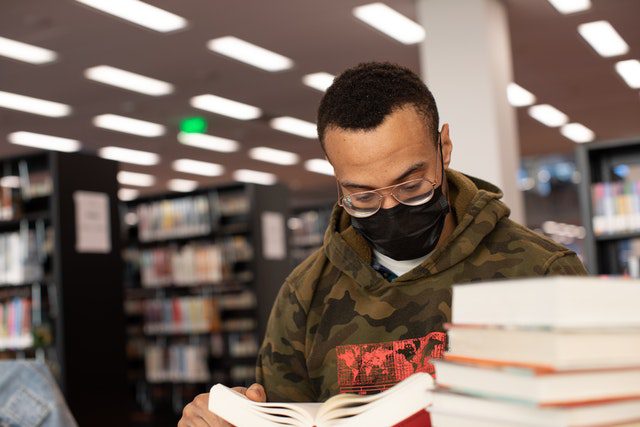Three States Join Nationwide Partnership to Advance Adult Higher Education Attainment
Alabama, Michigan, and Rhode Island have joined the Partnerships to Achieve Student Success (PASS) cohort of states that are envisioning a future in which adult learners, many of whom have some college education but no degree, obtain a credential or a degree that will help them to build a career of their dreams.
Everyone, no matter their age, race, zip code, or educational background deserves to get the education and the career they want. And more than ever, the best paying jobs require some kind of post-HS education, whether that’s training, certificate programs, or a degree. Yet, there are still millions of people who do not have these credentials, particularly adults of color.
In partnership with Third Sector and with funding from the ECMC Foundation, the PASS cohort employs a student-first approach designed to prioritize racial equity in its understanding of both the problem and how - and with whom - it will design solutions to that problem. Each state has defined its priority adult population with an eye toward equity in higher educational attainment, considering demographic factors such as race/ethnicity, student, parents, and students who are the first in their family to pursue higher education, as well as the types of challenges students experience, such as meeting basic needs while pursuing a credential.
Since January 2022, Alabama, Michigan, and Rhode Island have engaged in monthly cross-cohort learning and field-building virtual convenings as well as monthly one-on-one technical assistance and coaching with Third Sector, and in partnership with Education Strategy Group, to:
- use quantitative and qualitative data to better understand the magnitude of the challenge around re-engaging adults and identify priority subpopulations who are struggling the most to obtain a credential;
- engage stakeholders, including “stopped-out” (students who have withdrawn from enrollment) and returning adult learners, to dive deeper into their unique challenges, the root causes of those challenges, and existing resources that could support those adults;
- identify evidence-based wraparound service models that could strategically address unmet needs; and
- develop funding options, policies, data-sharing practices, and other creative state-level solutions to implement the proposed services, including utilizing American Rescue Plan (ARP) relief dollars.
Now, halfway through the cohort, the states are starting to hone in on potential areas of focus in alignment with their broader state-level strategies:
- Alabama Commission on Higher Education (ACHE) and Alabama Possible: After reviewing their statewide postsecondary outcomes data, Team Alabama noticed that a few public institutions had concentrated populations of adult (25+) students pursuing bachelor’s degrees. The team is partnering with those institutions to better understand how they are serving adult learners, and whether there are academic frameworks and/or wraparound supports that can be scaled to other institutions across the state.
- Michigan Reconnect, administered by the Michigan Department of Labor and Economic Opportunity (LEO), which supports the state’s postsecondary attainment goal Sixty by 30: After a successful 2021 launch, Team Michigan is planning for year two of their Michigan Reconnect program, which provides free in-district community college tuition to complete a Pell-eligible associate degree or skills certificate, as well as the advising support of Reconnect Navigators who are re-engaging adults who left postsecondary education and first-time adult learners who are ready to earn a credential. The team is specifically focused on bridging the gap between adults applying for the Reconnect scholarship and those taking the next steps towards enrolling in higher education.

- Rhode Island Office of the Postsecondary Commissioner (OPC): Team Rhode Island is focused on adults with one or more years of college credits, a demographic that makes up the majority (67%) of the state’s total population with some college, no degree. The team is digging into racial equity gaps that may exist, the root causes of why these adults disengaged in the first place, and what supports they may need to come back and complete a credential. These efforts will complement existing degree completion programs at public higher education institutions.
Third Sector is committed to supporting states so they have clear and actionable roadmaps and realistic timelines to move forward their plans for re-engaging adult learners in higher education, aligned with each state’s strategic goals and available resources. By the end of the cohort in May, states will have co-created an implementation plan with Third Sector that outlines the challenge they are seeking to address, the specific subpopulation of adults with “some college, no degree” that have high barriers to obtaining a credential, root causes of the challenge and corresponding population needs, as well as a hypothesis for which services could address those needs and how they will implement them.
For more information, contact Alysha Alani at aalani@thirdsectorcap.org
